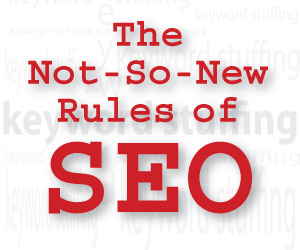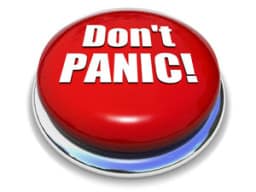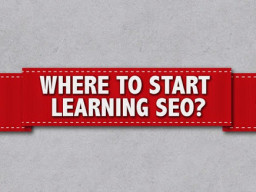If you have been reading about SEO for longer than a few minutes, you have probably found some variation of “build your website/write content for people, not search engines”. We have preached this from day one, but it seems like it may be one of those things that people read, but don’t really understand what it means. In light of Google’s recent announcements of an upcoming penalty for “over optimization“, an even more recent warning of a webspam algorithm update (edit: now called “Penguin”), and a few years of algorithm updates and a spam-fighting panda, let’s take yet another look at modern SEO and some things to do, or not do, to avoid a drop in your search engine rankings or how to recover from a Google Penguin problem if you have already been hit.
 One would think that by now most website owners would have figured out that trying to trick Google is a bad idea, but some may have done things months or years ago that they did not think would matter because “it’s the WWW and everyone lies, cheats and steals, right?” No, everyone does not. It is time to undo those SEO mistakes and bad ideas. For many, un-overoptimizing (huh?!) is going to mean undoing or removing a lot of goofy things that were done in the name of better search engine positions.
One would think that by now most website owners would have figured out that trying to trick Google is a bad idea, but some may have done things months or years ago that they did not think would matter because “it’s the WWW and everyone lies, cheats and steals, right?” No, everyone does not. It is time to undo those SEO mistakes and bad ideas. For many, un-overoptimizing (huh?!) is going to mean undoing or removing a lot of goofy things that were done in the name of better search engine positions.
Keyword obsession, ill-advised tips and bad advice
Forget what you “read somewhere” about keywords, density, interlinking, blog networks, link exchanges, link velocity, hyper-something-or-other… ugh! Too many to get into. In short, if you read something about SEO and it seemed like the writer just made up his own buzzword or it sounded like a crazy scheme, don’t let it take up space in your brain – and don’t add it to your online marketing plan.
As a matter of fact, forget that there is any such thing as a search engine algorithm. Forget for a moment that you are doing business online and think of the web the way you would phone solicitation, direct mail or any other form of offline marketing. How much sneakiness and bizarre behavior would your potential customers tolerate in the “real” world? Your online marketing should be no different.
Stop thinking “what will this mean for SEO?” every time you add something to your website. Instead, think “what will this mean to the people who visit my site?” or…
“Would I do this if there were no search engines?”
If you went to your website for the very first time, would it make sense to you? Or would it look kind of strange – repetition of the same few phrases in the titles, the copy, the navigation, the links to other pages, etc? This is especially important in the title element – the text that shows up as a link to your site in the search engine results. Keyword-obsessed webmasters will often fill up the title with their favorite keywords in order to rank well, declare victory, and then wonder why there is still no traffic coming to the site. That is because while you may think search engines want a list of almost random words, people do not. And Google wants to give people what they want. You may get a higher position with nothing but keywords, but a well written title is much more effective at getting users to click through to your site. Do put your most important target terms in the title, but you don’t need to repeat it so much that you left no room for branding. Yes, being on page one is still so much better than being on page two or lower. But if you are ranking within say, the top 5 to 7 spots, being attractive to users becomes just as important.
Think about your own web browsing habits. When you are searching for something, do you click on the very first search result without thinking? No, because you are not a robot. You usually take a second or two to get some idea of what the page you are about to view is about, and go to the site that looks not only the most relevant, but the most attractive to your interest, or possibly the easiest to understand. Now look at the titles of the pages on your site. Would the title make sense to you, as a rational human being who has no idea that search engine optimization exists? Or would it look like Google served up some sort of table of contents listing of tags or keywords?
You can also apply this to your meta description tags – the text Google usually shows under the links in search results. Do you have awesome advertising copy in your meta descriptions, or just a spammy list of keywords? The content of the meta description doesn’t mean much to rankings, though it does help establish relevance. The meta description is your opportunity to make a good first impression. Don’t be afraid to be a little clever in your descriptions – especially if you are in a competitive marketing niche where everyone is saying the same keyword-stuffed nonsense in their titles and descriptions. Titles and descriptions that read like a good advertisement will bring more traffic to your website – and it will be users who are more likely to stick around and absorb your message. And if that isn’t enough to break your keyword stuffing habits, think about that looming Google penalty for being “overly optimized.”
The takeaway here for those who are addicted to keyword position as a key SEO metric: switch to click-through and conversion rates. Those are a much healthier way to lose sleep over your web marketing. For content, focus on topics or themes rather than key phrases. Write well, use a variety of words that mean the same thing as your beloved keywords and use the best SEO keyword research tools available – a thesaurus and rational thought.
(Didn’t we say we are not your typical SEO company?)
Link Building for People Not Search Engines
Article marketing, blog networks, “thousands of directories” and just about any other link you might get solely for the SEO value… OK, when have you ever found a really excellent website or business by following links from any of those? Of course some sites will still need lots of good incoming links to do well, but don’t count on those easy to get but hard to justify links to count for much.
Just how stupid do you think Google is people are?
Maybe you are thinking, “I have to rank #1 so I am going to put comma separated keywords in my title element instead of something people would like. Screw Google’s guidelines”
Hey, it’s your website. If you feel that being #1 is a more important goal than reaching your target audience and showing them how good your products or services are without looking like a spammer, that is up to you. Google is getting smarter every day, getting better at recognizing even the more subtle attempts at manipulating the results, and recognizing things that make sense to people, not just search engines. Before long, that top spot that seems so important will be taken by a website that conveys its message well – to people.
“But what about my keywords? Don’t I have to have extra special secret keywords in every title on every page and use them somewhere between 2 and 7 percent of the total text so I can be #1?”
Seriously, forget everything you ever “read somewhere” about keywords.




